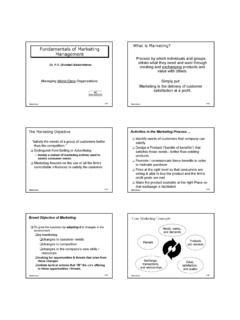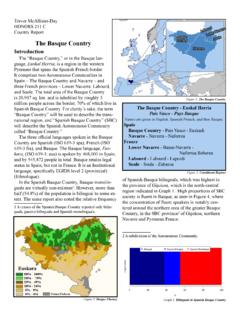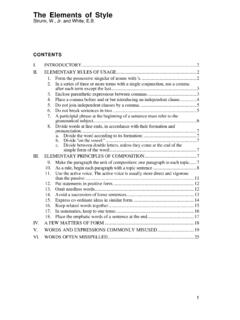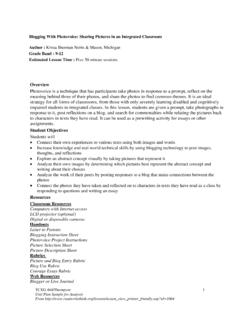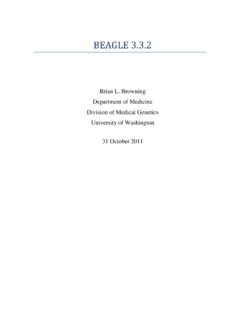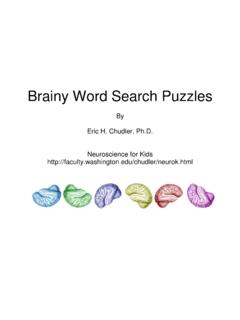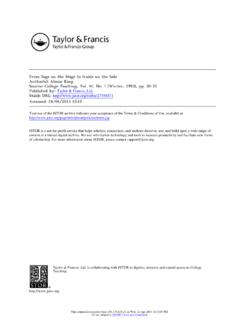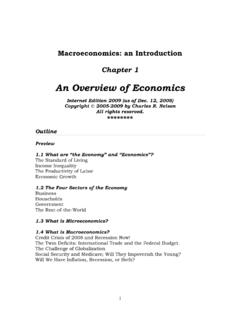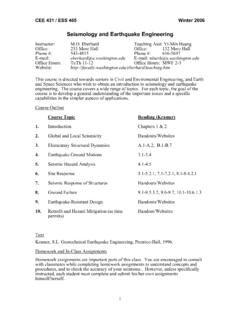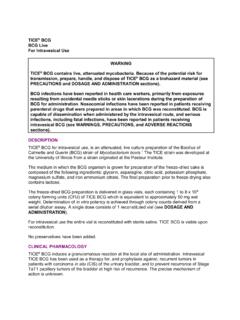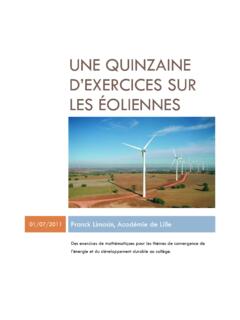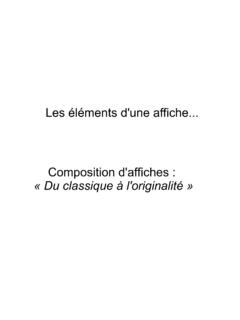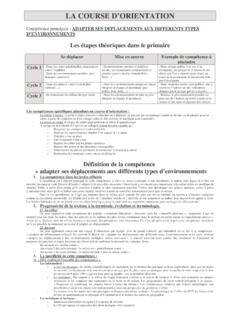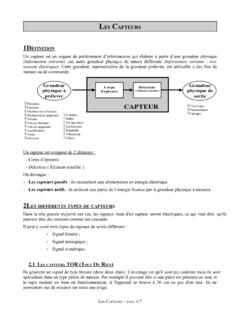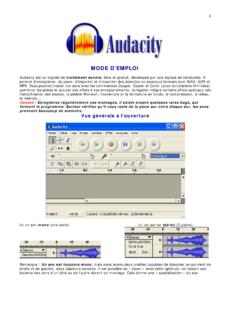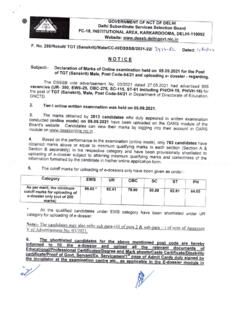Transcription of Ego Depletion: Is the Active Self a Limited Resource?
1 Ego Depletion: Is the Active Self a Limited Resource? Roy E Baumeister, Ellen Bratslavsky, Mark Muraven, and Dianne M. Tice Case Western Reserve University Choice, Active response, self-regulation, and other volition may all draw on a common inner resource. In Experiment 1, people who forced themselves to eat radishes instead of tempting chocolates subsequently quit faster on unsolvable puzzles than people who had not had to exert self-control over eating. In Experiment 2, making a meaningful personal choice to perform attitude-relevant behavior caused a similar decrement in persistence. In Experiment 3, suppressing emotion led to a subsequent drop in performance of solvable anagrams. In Experiment 4, an initial task requiring high self-regulation made people more passive ( , more prone to favor the passive-response option).
2 These results suggest that the self's capacity for Active volition is Limited and that a range of seemingly different, unrelated acts share a common resource. Many crucial functions of the self involve volition: making choices and decisions, taking responsibility, initiating and inhib- iting behavior, and making plans of action and carrying out those plans. The self exerts control over itself and over the external world. To be sure, not all human behavior involves planful or deliberate control by the self, and, in fact, recent work has shown that a great deal of human behavior is influenced by automatic or nonconscious processes (see Bargh, 1994, 1997). But undoubtedly some portion involves deliberate, conscious, controlled responses by the self, and that portion may be dispro-' portionately important to the long-term health, happiness, and success of the individual.
3 Even if it were shown that 95% of behavior consisted of lawful, predictable responses to situa- tional stimuli by automatic processes, psychology could not afford to ignore the remaining 5%. As an analogy, cars are probably driven straight ahead at least 95% of the time, but ignoring the other 5% (such as by building cars without steering wheels) would seriously compromise the car's ability to reach most destinations. By the same token, the relatively few Active , controlling choices by the self greatly increase the self's chances of achieving its goals. And if those few "steering" choices by the self are important, then so is whatever internal structure of the self is responsible for it. In the present investigation we were concerned with this con- trolling aspect of the self.
4 Specifically, we tested hypotheses of ego depletion, as a way of learning about the self's executive function. The core idea behind ego depletion is that the self's acts of volition draw on some Limited resource, akin to strength or energy and that, therefore, one act of volition will have a detrimental impact on subsequent volition. We sought to show that a preliminary act of self-control in the form of resisting temptation (Experiment 1 ) or a preliminary act of choice and responsibility (Experiment 2) would undermine self-regulation in a subsequent, unrelated domain, namely persistence at a dif- ficult and frustrating task. We then sought to verify that the effects of ego depletion are indeed maladaptive and detrimental to performance (Experiment 3).
5 Last, we undertook to show that ego depletion resulting from acts of self-control would interfere with subsequent decision making by making people more passive (Experiment 4). Our research strategy was to look at effects that would carry over across wide gaps of seeming irrelevance. If resisting the temptation to eat chocolate can leave a person prone to give up faster on a difficult, frustrating puzzle, that would suggest that those two very different acts of self-control draw on the same Limited resource. And if making a choice about whether to make a speech contrary to one's opinions were to have the same effect, it would suggest that that very same resource is also the one used in general for deliberate, responsible decision making.
6 That resource would presumably be one of the most important features of the self. Roy E Baumeister, Ellen Bratslavsky, Mark Muraven, and Dianne M. Tice, Department of Psychology, Case Western Reserve University. This research was supported by National Institute of Health Grants MH-51482 and MH-57039. Experiment 1 was the master's thesis of Ellen Bratslavsky, directed by Roy E Baumeister. Some of these findings have been presented orally at several conferences. Correspondence concerning this article should be addressed to Roy E Baumeister, Department of Psychology, Case Western Reserve University, 10900 Euclid Avenue, Cleveland, Ohio 44106-7123. Electronic mail may be sent to Executive Function The term agency has been used by various writers to refer to the self's exertion of volition, but this term has misleading connotations: An agent is quintessentially someone who acts on behalf of someone else, whereas the phenomenon under discus- sion involves the self acting autonomously on its own behalf.
7 The term executive function has been used in various contexts to refer to this aspect of self and hence may be preferable ( , Journal of Personality and Social Psychology, 1998, Vol. 74, No. 5, 1252-1265 Copyright 1998 by the American Psychological Association, Inc. 0022-3514/98/$ 1252 EGO DEPLETION 1253 Epstein, 1973; see Baumeister, 1998). Meanwhile, we use the term ego depletion to refer to a temporary reduction in the self's capacity or willingness to engage in volitional action (including controlling the environment, controlling the self, making choices, and initiating action) caused by prior exercise of volition. The psychological theory that volition is one of the self's crucial functions can be traced back at least to Freud (1923/ 1961a, 1933/1961b), who described the ego as the part of the psyche that must deal with the reality of the external world by mediating between conflicting inner and outer pressures.
8 In his scheme, for example, a Victorian gentleman standing on the street might feel urged by his id to head for the brothel and by his superego to go to church, but it is ultimately left up to his ego to start his feet walking in one direction or the other. Freud also seems to have believed that the ego needed to use some energy in making such a decision. Recent research has convincingly illuminated the self's nearly relentless quest for control (Brehm, 1966; Burger, 1989; DeCharms, 1968; Deci & Ryan, 1991, 1995; Langer, 1975; Rothbaum, Weisz, & Snyder, 1982; Taylor, 1983, 1989; White, 1959). It is also known that when the self feels highly responsi- ble (accountable) for its actions, its cognitive and behavioral processes change (Cooper & Scher, 1994; Linder, Cooper, & Jones, 1967; Tetlock, 1983, 1985; Tetlock & Boettger, 1989).
9 Active responses also have more powerful effects on the self and its subsequent responses than do passive ones (Allison & Messick, 1988; Cioffi & Garner, 1996; Fazio, Sherman, & Herr, 1982). The processes by which the self monitors itself in order to approach standards of desired behavior have also been studied (Carver & Scheier, 1981; Duval & Wicklund, 1972; Wegner, 1994; Wegner & Pennebaker, 1993). Despite these efforts, it is hard to dispute that understanding of the executive function remains far more vague and rudimen- tary than other aspects of self-theory. Researchers investigating cognitive representations of self have made enormous progress in recent decades (for reviews, see Banaji & Prentice, 1994; Fiske & Taylor, 1991).
10 Likewise, there has been considerable progress on interpersonal aspects of self hood ( , Leary, 1995; Leary & Kowalski, 1990; Schlenker, 1980; Tesser, 1988). In comparison, understanding of the self's executive function lags behind at a fairly primitive level. power be revived for self-regulation theory, and a literature re- view by Baumeister, Heatherton, and Tice (1994) concluded that much evidence about self-regulatory failure fits a model of strength depletion. An important early study by Glass, Singer, and Friedman (1969) found that participants exposed to unpredictable noise stress subsequently showed decrements in frustration tolerance, as measured by persistence on unsolvable problems, t Glass et al. concluded that adapting to unpredictable stress involves a "psychic cost," which implies an expenditure or depletion of some valuable resource.
